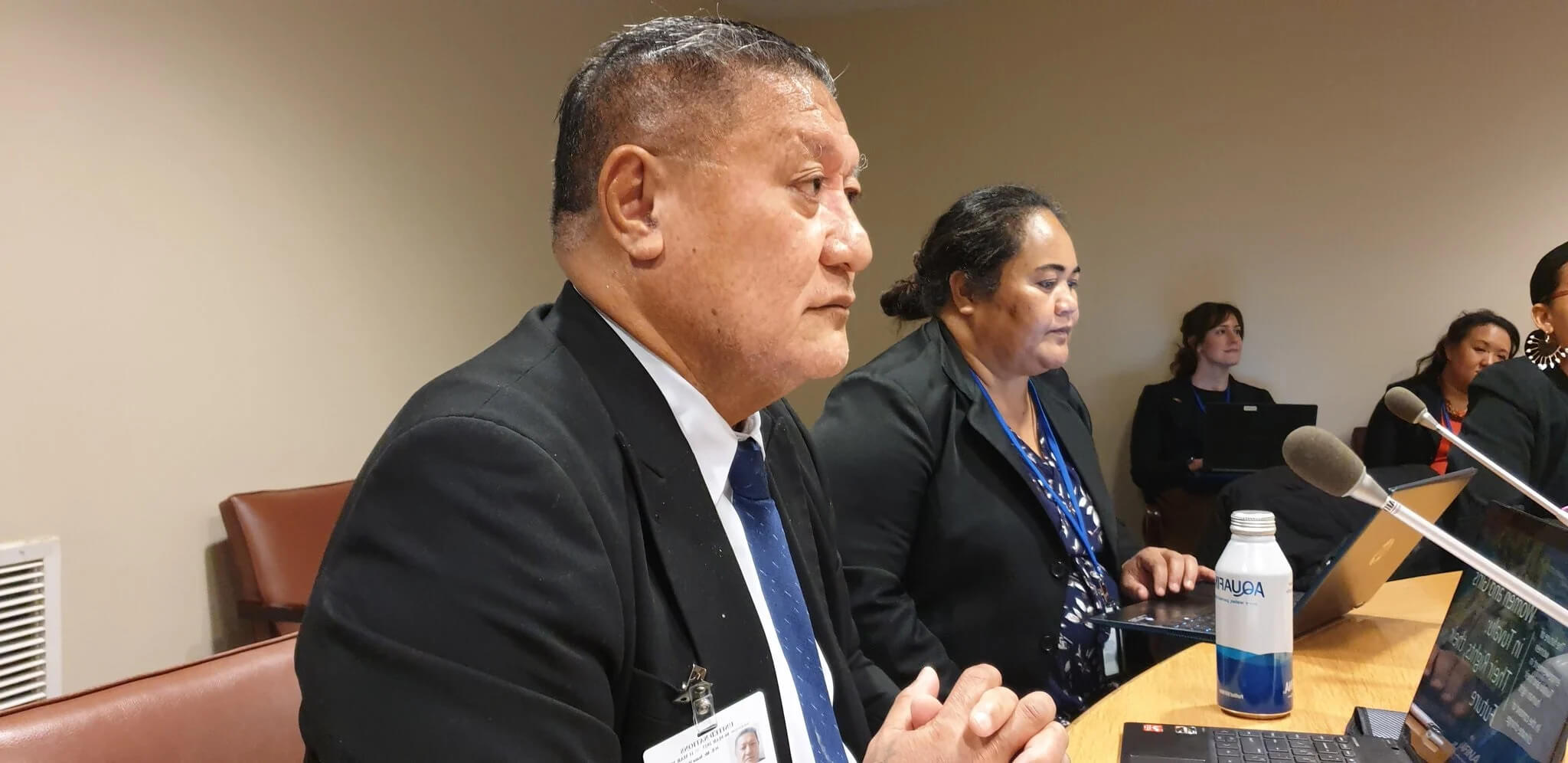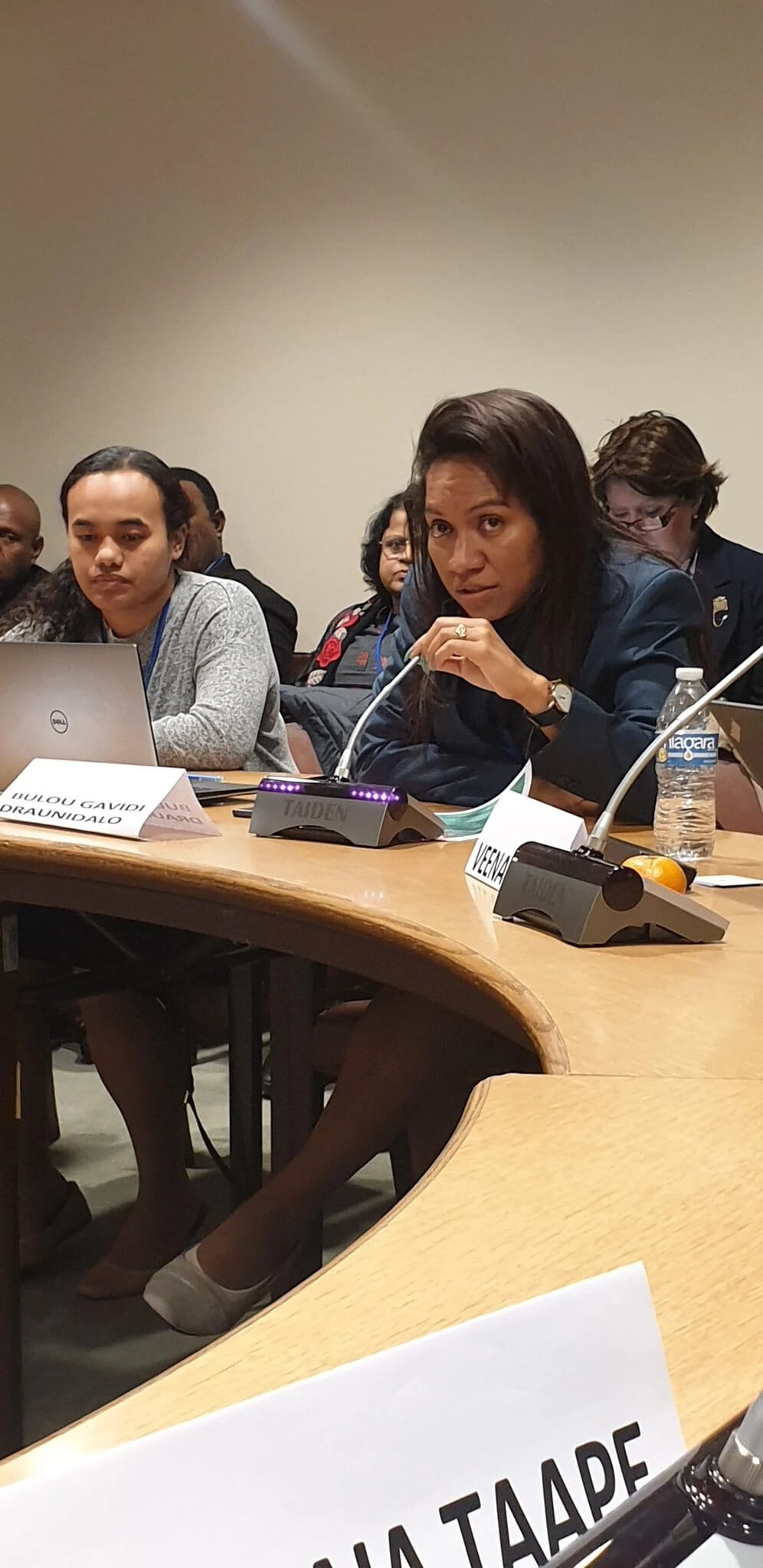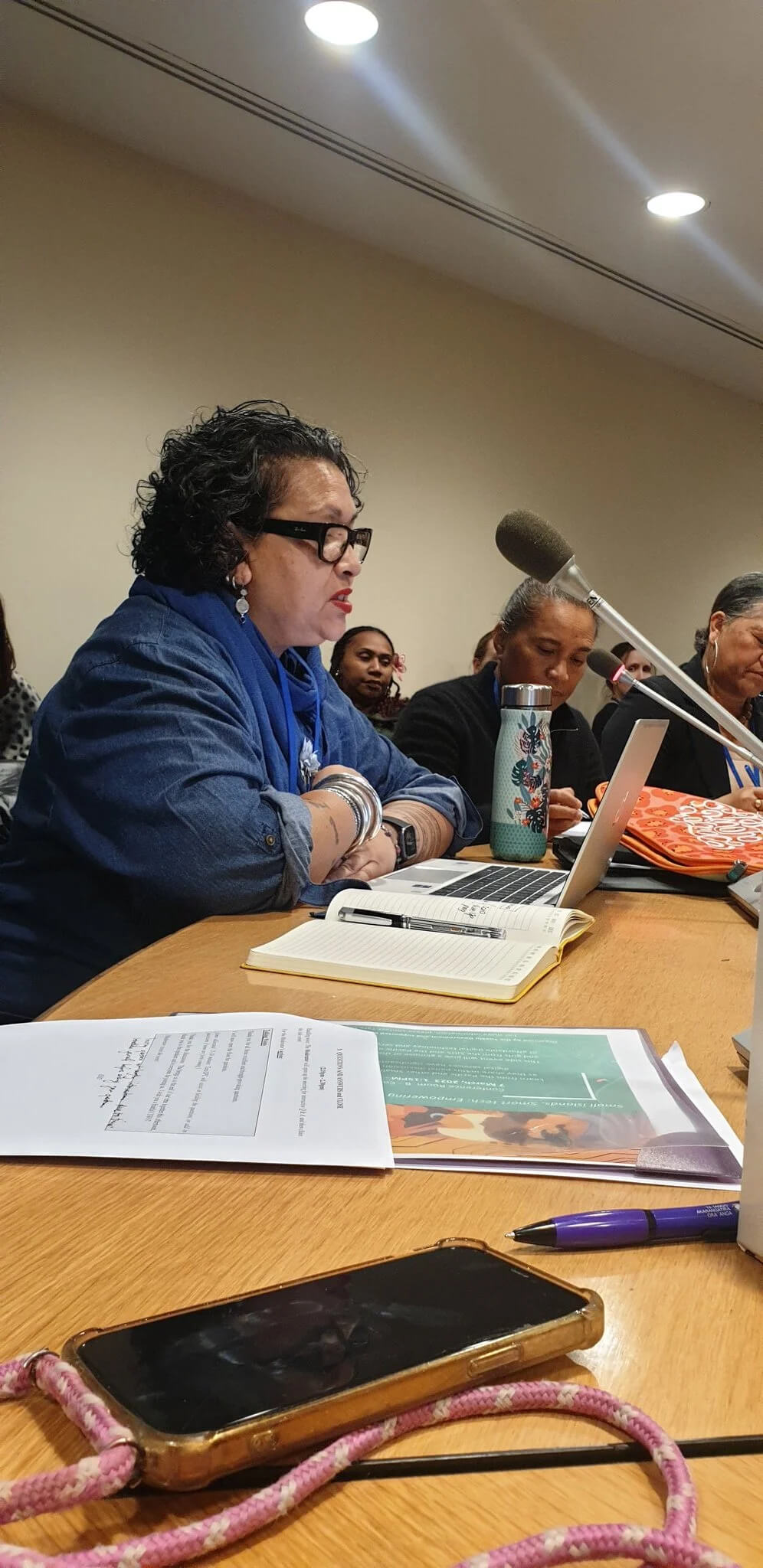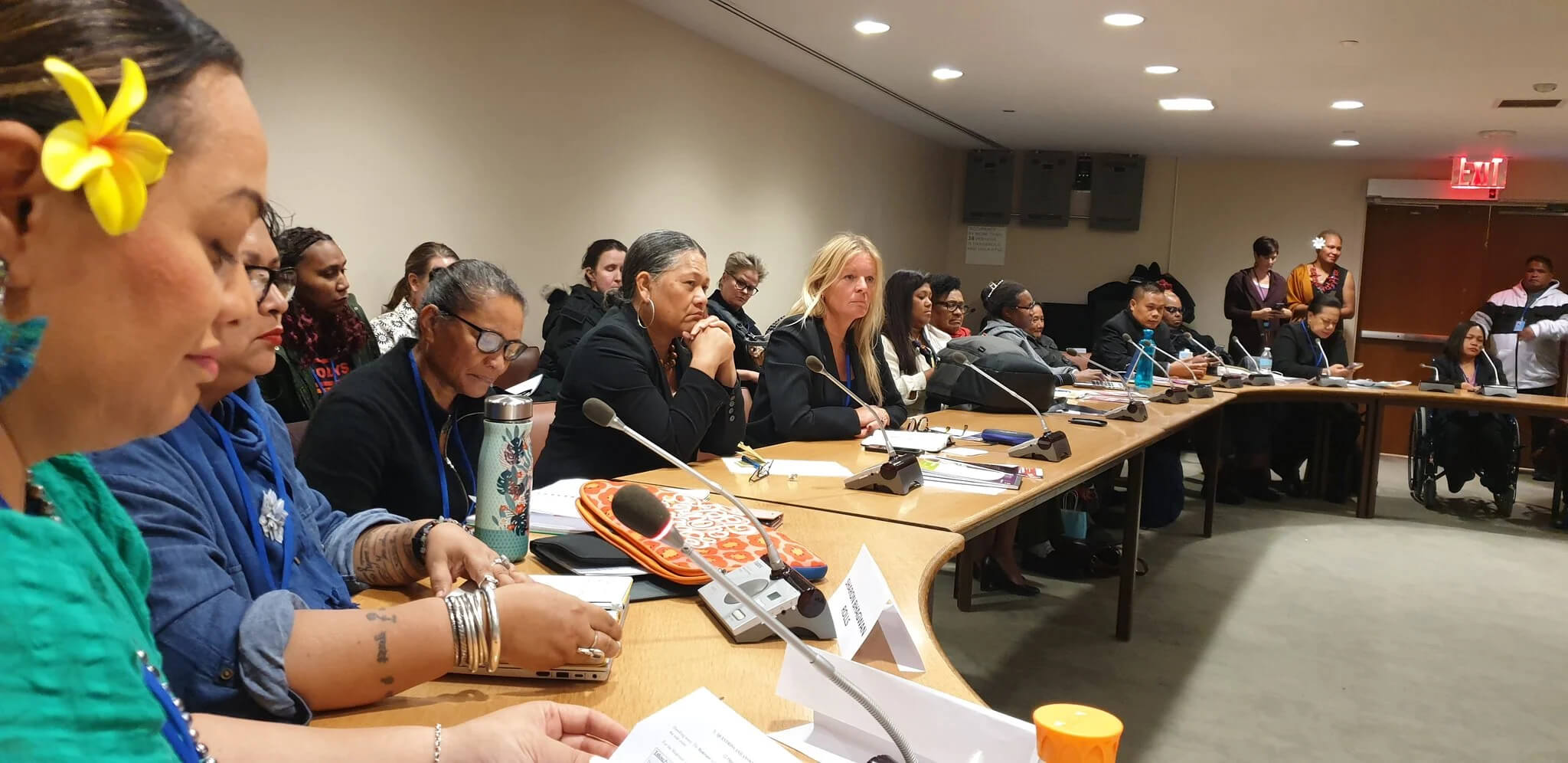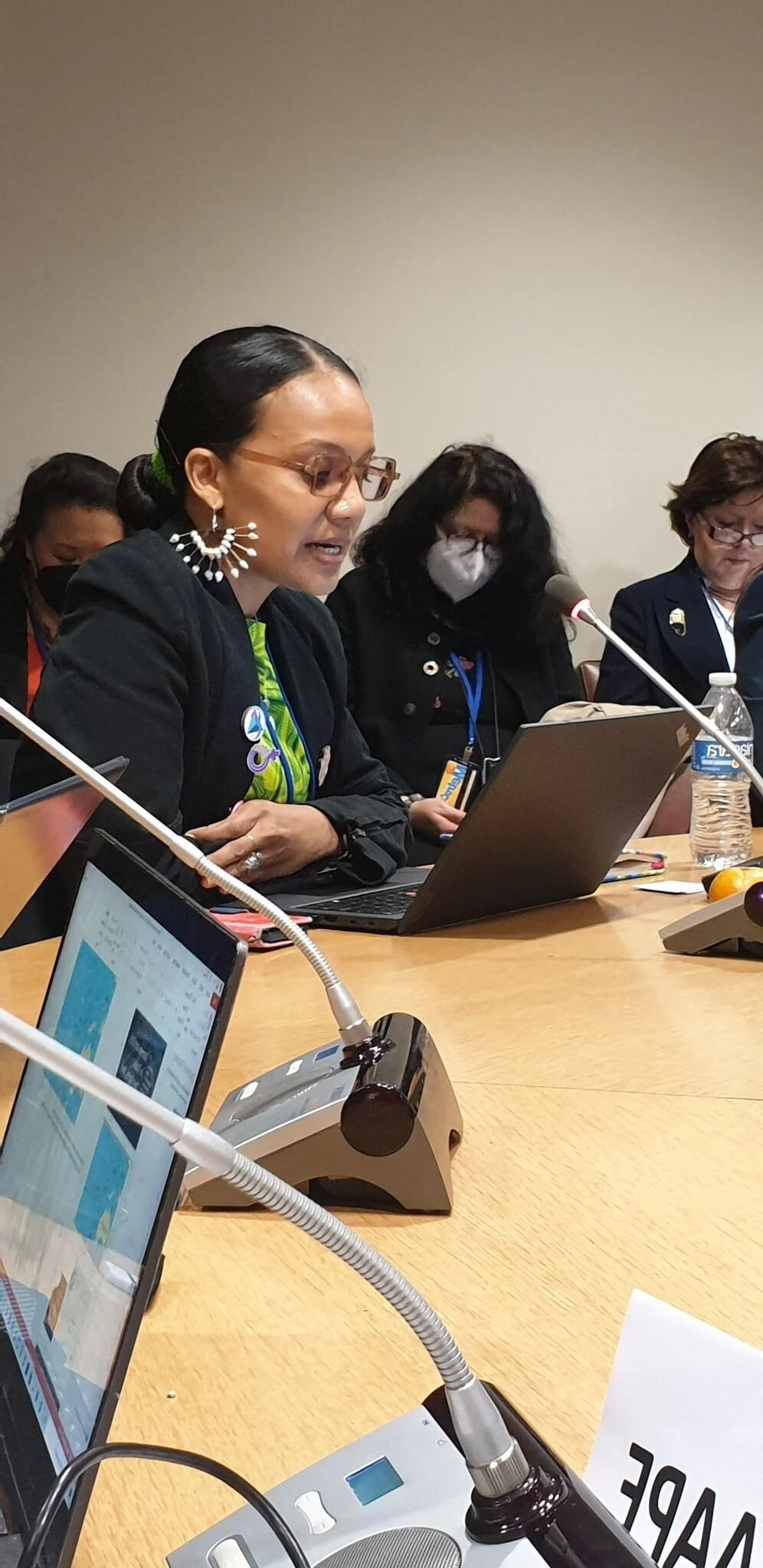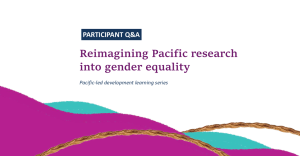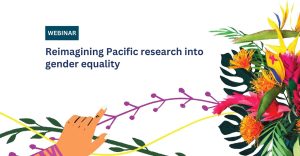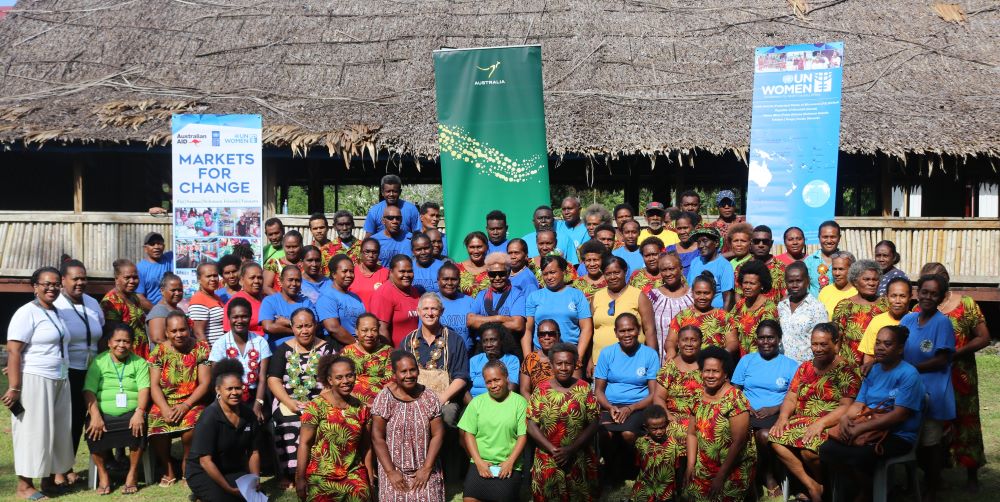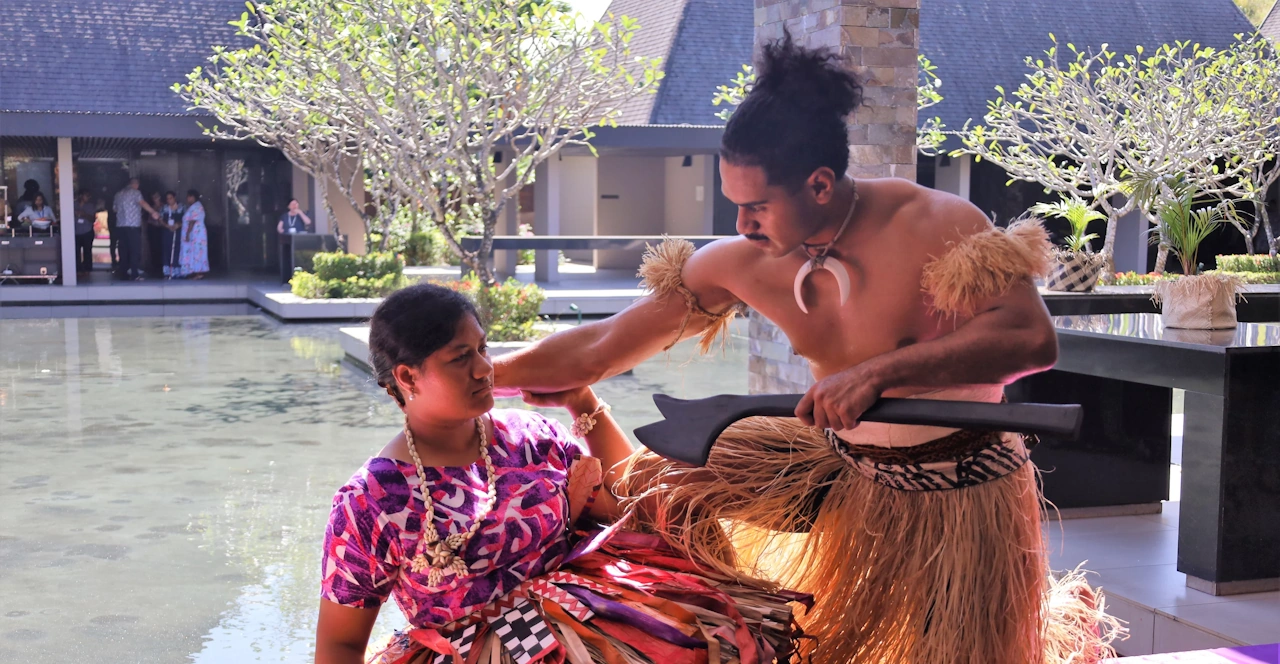When harnessing the possibility of information and communication technology (ICT) to balance the gender scales in the Pacific, solutions cannot be viewed in isolation.
Small islands, Smart tech: Empowering women and girls in the digital age
29 April 2024This was the prevailing theme at the side event that was attended by over 50 people and organised by the Tuvalu Government and the Gender Technical Working Group (GTWG) during the 67th session of the Commission on the Status of Women (CSW67) in New York.
The annual meeting of CSW is the largest gathering of feminists, academics, government officials and policy-makers to take stock of gender equality progress, renew their collective purpose and chart a new roadmap forward.
The Pacific Community (SPC) provided technical support to Pacific representatives at CSW67, in collaboration with the Pacific Islands Forum and UN Women. SPC’s continuous contribution includes funding and logistical support for delegates from 8 Pacific Island countries, including two youth delegates from Fiji and the Federated States of Micronesia.
A cautious enthusiasm was the takeaway from the Small islands, Smart tech: Empowering women and girls in the digital age side event where attendees heard insights on how ICT is driving gender equality despite the challenges. Speakers also highlighted existing solutions to safeguard against the risks to women and girls, as well as pathways to determining what is needed to keep people safe online.
Tuvalu’s side event brought a variety of perspectives from the region on the potential and pitfalls of increasing access to technology and digital services in empowering women and girls.
Opening the session, Honourable Isaia Taape, Tuvalu’s Minister for Health, Social Welfare and Gender, set the scene with a personal reflection and overview of the Te Ataeao Nei (Future Now) Project.
The project includes developing tools and platforms for a “digital nation” – identifying the technological response if Tuvalu gains recognition of its statehood as permanent but its land territory is lost to sea level rise.
While Tuvalu is setting the pace of innovation, other countries in the region have joined the journey.
In Papua New Guinea, Tonga and Samoa, local organisations and the Web Foundation’s Rights Online (WRO) programme developed the Digital Gender Gap Audit Scorecards. It helps countries assess what research, data, policies and investments are needed to close the gender digital divide and ensure women and girls are at the forefront of sustainable development and digital equality.
Recommendations from the audit were juxtaposed by the lived experiences of Bulou Gavidi Draunidalo, founder of Unicorn Technology Solutions from Fiji, and Mercedes Olter, who used online survey platforms to advocate for and refine reusable menstrual hygiene products in the Federated States of Micronesia.
Ms Draunidalo reflected on how she has seen mobile money transfer platforms and solar panels connect rural and remote communities to sources of income while using green technology to transition from expensive diesel generators.
“While digital technologies offer potential solutions – both for climate change and for advancing gender equality – they can also be a source of harm,” added Ms Olter. “The large carbon footprint of new and emerging technologies, along with new forms of technology-facilitated gender-based violence, pose a threat to young women and girls in the Federated States of Micronesia and other small island developing states.”
“In the Pacific, while technology facilitates gender-based violence is more prevalent now…there are few interventions that specifically address it,” highlighted Veena Singh, Programme Coordinator (RiseUp! Leadership initiative) at the World Young Women’s Christian Association (YWCA).
Ms Singh shared her experience of receiving threats of sexual violence as a moderator of the innovative exchange platform Barter for a Better Fiji (a non-cash exchange platform established to help Fiji communities during the initial COVID-19 response period). While there is scope in existing law to respond to such threats, Ms Singh believes more can be done.
“From what we have, even fewer interventions aim to prevent it in the first place,” she said. “It’s a new field for the Pacific so, generally, we don’t yet have the data and information we need to analyse and respond to it.”
This conundrum of benefit versus the risk in the use of ICTs is experienced by many globally, let alone in the Pacific. Still, the region is not without its own home-grown solutions. A women-led information and communications system to support women to lead climate action, including disaster preparedness and response, offers a broad approach that can be tailored and fit for purpose.
First conceptualised in 2004 in Fiji, the Pacific Owned, Women-Led Early Warning & Resilience (POWER) System has been used to enhance women’s leadership in the face of extreme weather events and other humanitarian crises.
“This is a small-island-smart, appropriate and accessible tech solution that I co-created in 2004 with my colleague Adivasu Levu in a meeting with rural women in Fiji with [a mobile phone] and a database of rural women leaders,” explained Sharon Bhagwan Rolls, Regional Representative for the Shifting the Power Coalition. “Seeing the disconnect between official information and women’s lived realities and solutions… it is a reminder that the outcomes for CSW67 must be accountable and relevant to the traditional and local knowledge, the inclusive innovation and expertise of Pacific Island women.”
“It means not just looking at the potential of new and digital ICTs but appropriate and accessible technology. It means enabling meaningful participation and leadership by addressing the gap of access due to the challenges of rural and maritime infrastructure, high costs of accessible devices and online costs, barriers to language and the imbalance of women’s representation in tech.”
Later this week, a set of conclusions are expected to be agreed upon and serve as the blueprint for improving the lives of women and girls through innovation, technology and education in the digital age.
As negotiations continue to define these conclusions, the Pacific experience is a clear reminder of the need to carefully consider the safety and well-being of all Pacific people, including young women in all their diversities, as we spearhead the development of and engage with a growing digital space.
